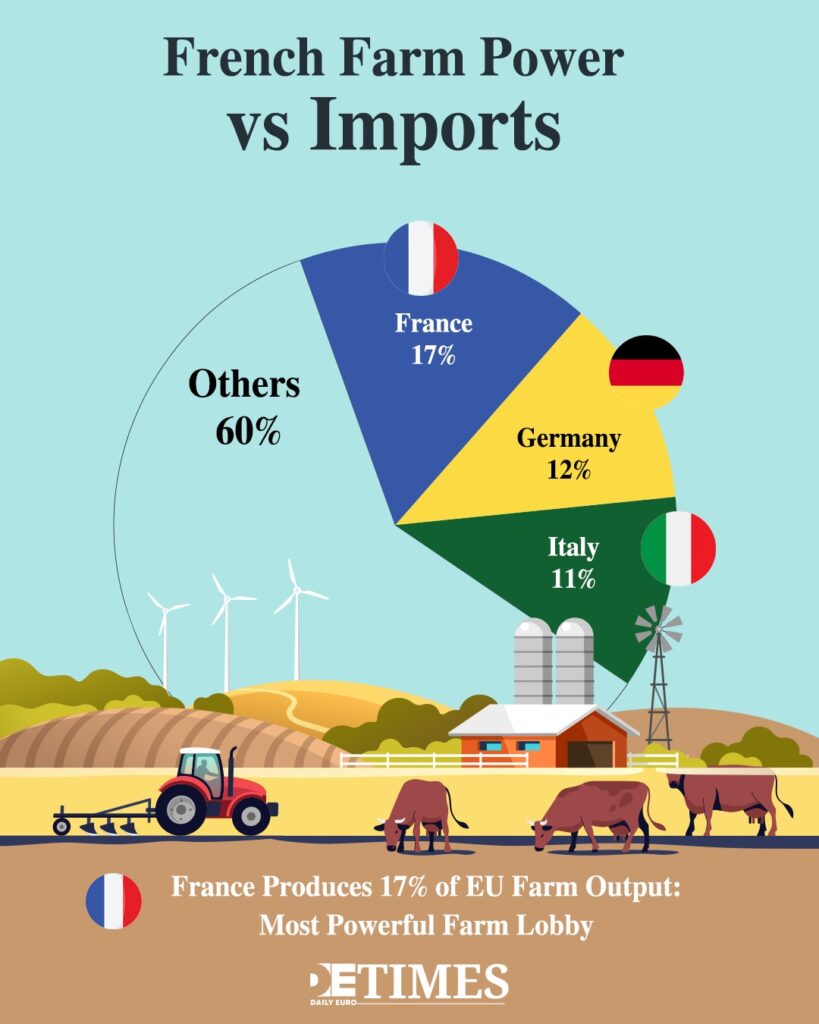European Commission officials expect to present the Mercosur trade agreement text this week. Yet French farmers remember their power from earlier protests. Rural France won’t accept South American competition without a fight.
Brussels Pushes Forward With Latin American Partnership
For twenty-five years, trade negotiators have worked on this deal with Argentina, Brazil, Paraguay, and Uruguay.
The European Union wants to boost economic ties through tariff removal. European car makers and chemical producers stand to gain from cheaper exports to growing South American markets.
Brussels sees the agreement as insurance against global trade wars. Supply chains need diversification. Latin American partners offer strategic value for green and digital transitions.
French Countryside Prepares Economic Resistance Strategy
Farm groups already threaten chaos over increased agricultural imports. Last November, tractor convoys converged on Paris.
Rural incomes have stagnated. Bureaucracy weighs down family operations. Climate change has damaged harvests across France.
South American producers follow different environmental standards. French farmers argue this creates unfair competition. Hormone-treated beef could flood European markets.
Political Leaders Walk Economic Tightrope Carefully
Emmanuel Macron opposes the deal publicly. French Agriculture Minister Annie Genevard cites deforestation and health concerns.
Italian and Polish governments support French resistance. Germany and Spain favour the agreement. Brussels needs unanimous approval from member states. Farmers doubt politicians will deliver on promises.
Winter protests taught Brussels a lesson. Rural constituencies wield electoral power. French farmers know how to shut down logistics networks.

Economic History Repeats With Familiar Patterns
European agriculture survived previous trade liberalisation. Competition built stronger farm businesses over decades. Protection often hurts consumers through higher food prices.
South American farmers face their own constraints. Transport costs eat into profit margins. European food safety standards remain unchanged regardless of origin.
Trade flows follow economic gravity. French cheese and wine find new customers in growing Latin American cities. Europe needs reliable protein supplies.
Rural France Tests Brussels Authority Once More
French farming communities must adapt to global markets. Protection cannot stop economic change forever. Smart farmers will find opportunities in expanded trade networks.
Government support should help modernisation rather than resist competition. Investment in technology and sustainable practices creates long-term advantages.
European consumers deserve affordable food choices. Trade agreements work best when they bring mutual benefits rather than protect special interests.
The Commission should listen to farmers' genuine concerns about environmental standards. South American producers could meet stricter requirements through targeted assistance programmes.
French tractors may block roads again if Brussels rushes ahead without compromise. European integration requires patience, not just paperwork.
Keep up with Daily Euro Times for more updates!
Read also:
Fighting Over Thin Air: Europe’s Green Energy Myth
Water as the New Oil: Europe and Morocco Deepen Cooperation
Ukraine Looks to the GCC at Time of Crisis






